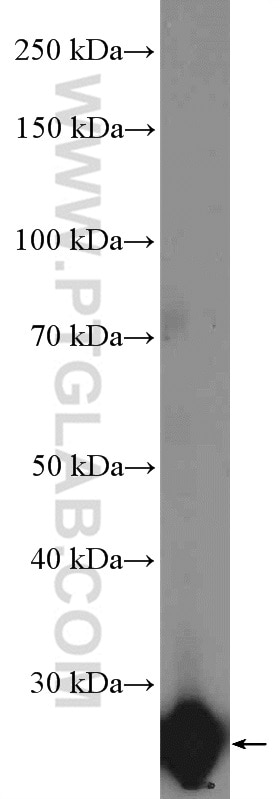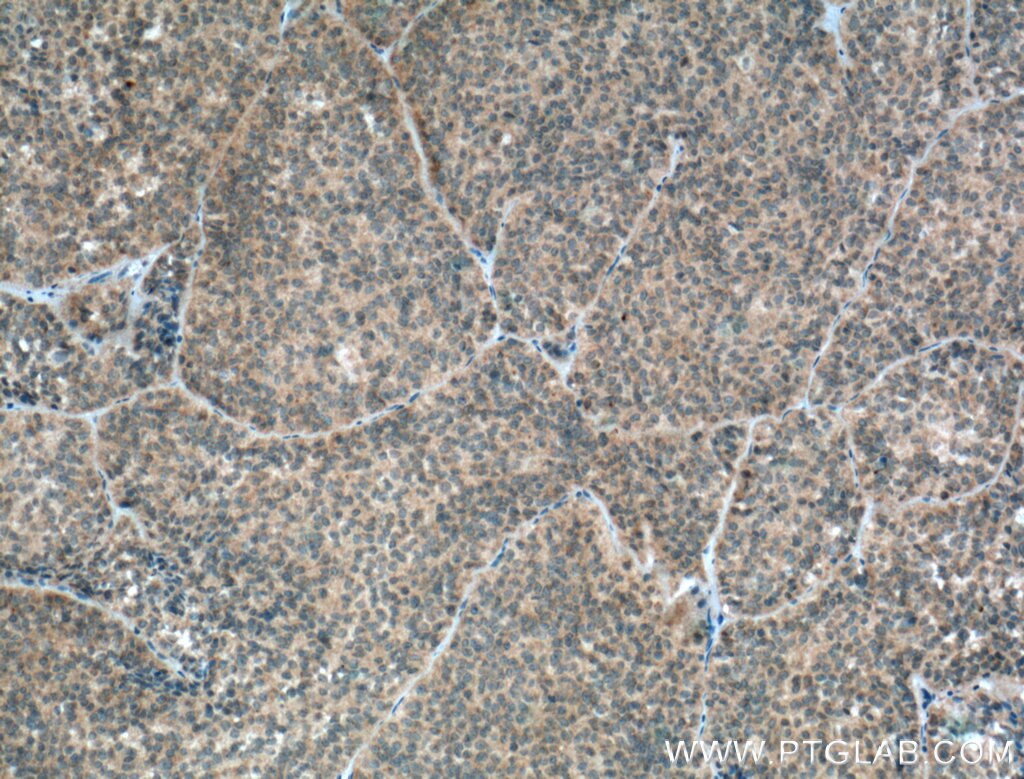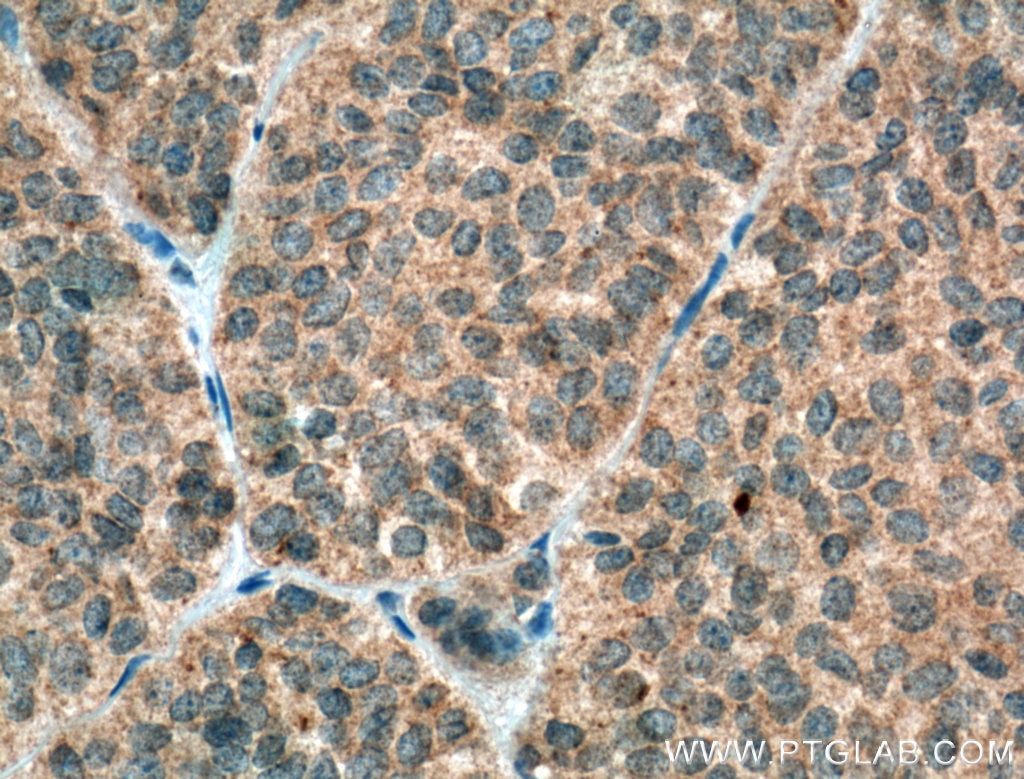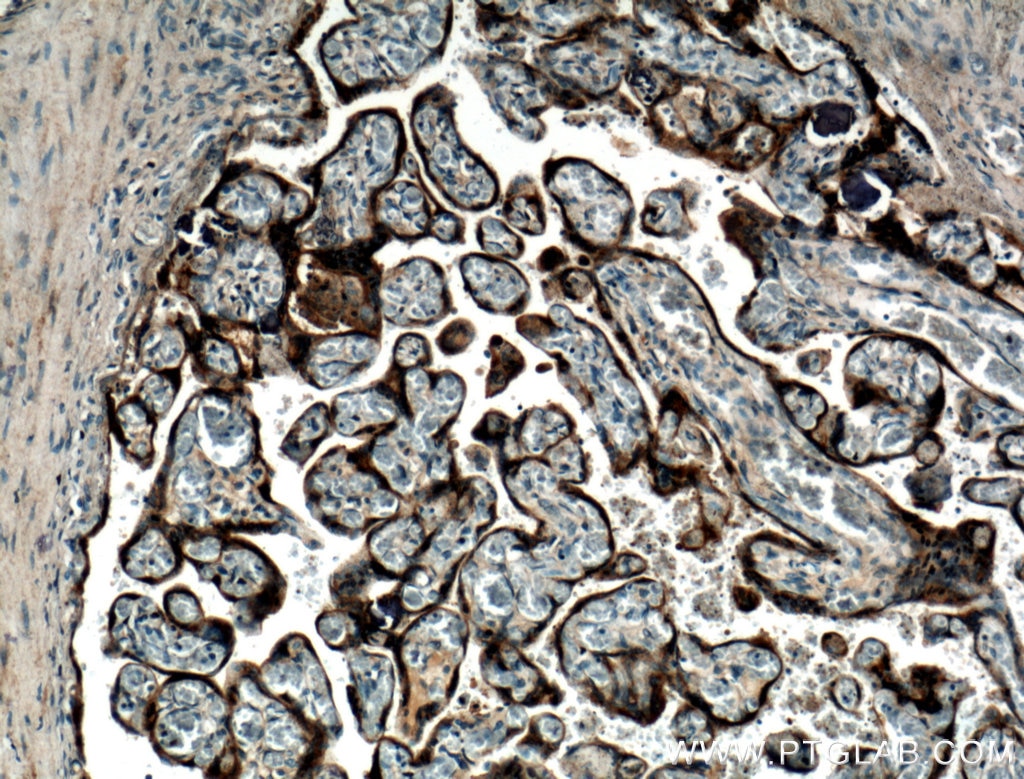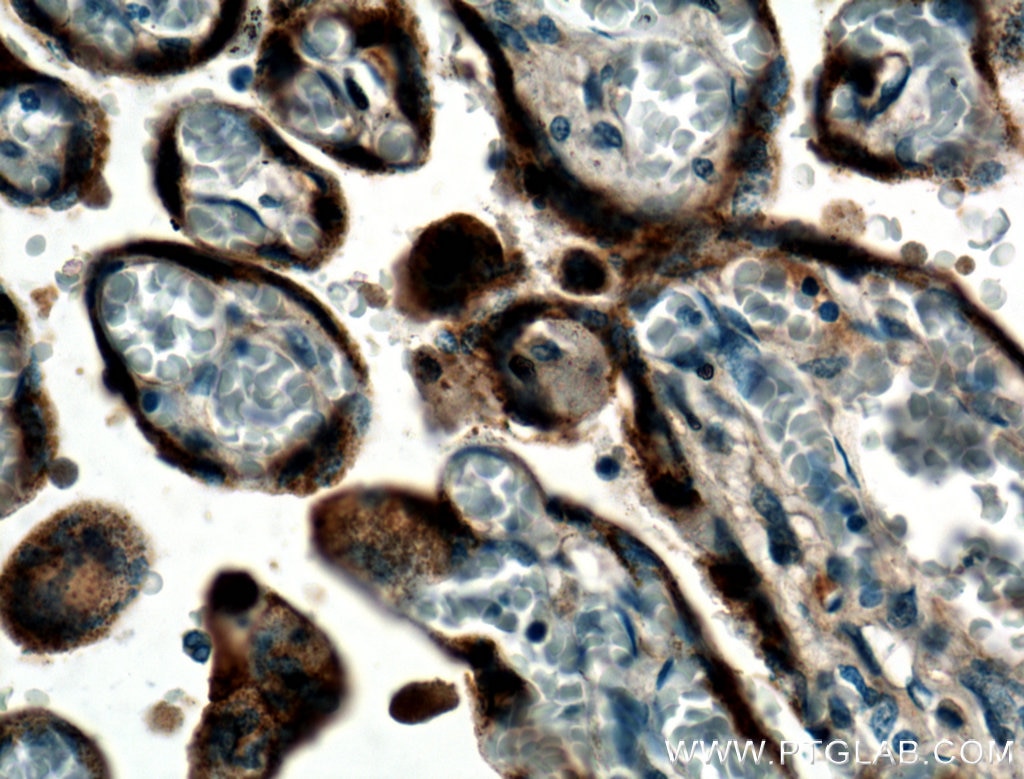Tested Applications
| Positive WB detected in | human placenta tissue |
| Positive IHC detected in | human pituitary adenoma tissue, human placenta tissue Note: suggested antigen retrieval with TE buffer pH 9.0; (*) Alternatively, antigen retrieval may be performed with citrate buffer pH 6.0 |
Recommended dilution
| Application | Dilution |
|---|---|
| Western Blot (WB) | WB : 1:500-1:2000 |
| Immunohistochemistry (IHC) | IHC : 1:50-1:500 |
| It is recommended that this reagent should be titrated in each testing system to obtain optimal results. | |
| Sample-dependent, Check data in validation data gallery. | |
Product Information
27079-1-AP targets Growth Hormone in WB, IHC, ELISA applications and shows reactivity with human samples.
| Tested Reactivity | human |
| Host / Isotype | Rabbit / IgG |
| Class | Polyclonal |
| Type | Antibody |
| Immunogen |
CatNo: Ag22841 Product name: Recombinant human GH1 protein Source: e coli.-derived, PGEX-4T Tag: GST Domain: 18-98 aa of BC075012 Sequence: LPWLQEGSAFPTIPLSRLFDNAMLRAHRLHQLAFDTYQEFEEAYIPKEQKYSFLQNPQTSLCFSESIPTPSNREETQQKSN Predict reactive species |
| Full Name | GH1 |
| Calculated Molecular Weight | 217 aa, 25 kDa |
| Observed Molecular Weight | 22 kDa |
| GenBank Accession Number | BC075012 |
| Gene Symbol | GH1 |
| Gene ID (NCBI) | 2688 |
| RRID | AB_2880745 |
| Conjugate | Unconjugated |
| Form | Liquid |
| Purification Method | Antigen affinity purification |
| UNIPROT ID | P01241 |
| Storage Buffer | PBS with 0.02% sodium azide and 50% glycerol, pH 7.3. |
| Storage Conditions | Store at -20°C. Stable for one year after shipment. Aliquoting is unnecessary for -20oC storage. 20ul sizes contain 0.1% BSA. |
Background Information
GH1, also named as GH or GH-N, belongs to the somatotropin/prolactin family. GH1 plays an important role in growth control. Its major role in stimulating body growth is to stimulate the liver and other tissues to secrete IGF-1. It stimulates both the differentiation and proliferation of myoblasts. It also stimulates amino acid uptake and protein synthesis in muscle and other tissues.
Protocols
| Product Specific Protocols | |
|---|---|
| IHC protocol for Growth Hormone antibody 27079-1-AP | Download protocol |
| WB protocol for Growth Hormone antibody 27079-1-AP | Download protocol |
| Standard Protocols | |
|---|---|
| Click here to view our Standard Protocols |

